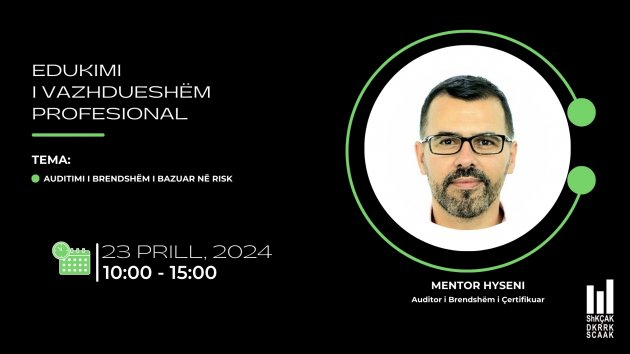The Right Governance
2020-03-11 - 09:46
Achieving high-quality audits is dependent on a well-functioning ecosystem of participants from the audit profession as well as from governing bodies, directors and management. The right culture—starting with the tone at the top—and right oversight are critical to achieving a high-quality and high-value audit.
- IFAC believes that the success of an entity, the quality of its reporting, and the quality of its audit depend on a functioning and effective ecosystem of participants—including boards and governing bodies, audit committees, management, the finance and accounting function, investors/owners, internal audit, external audit, and regulators. Auditors, no matter how skilled or resourced, are unlikely to overcome significant shortcomings in other areas of the ecosystem.
- Audit committees must actively engage in setting the audit plan and be empowered to set engagement terms, including fees commensurate with delivering a high-quality audit. To effectively undertake this responsibility, the qualifications of the audit committee members are critical. They must have appropriate skills, including strong financial and accounting expertise, knowledge of the entity’s operations, and other skills that ensure diverse composition. Audit committees must be independent of management—comprised of independent, non-executive directors.
- Within a reporting entity, professional accountants play a key role in all steps of the reporting process and should support a successful, high-quality audit process—applying their ethical foundation (i.e., the IESBA Code) and technical skills to the preparation of reported information and facilitating communication between boards, auditors and stakeholders. Independent, internal auditors who monitor, review, and provide assurance also play a critical role.
- IFAC believes that firms, regardless of their size, must foster a culture of the highest ethical standards across the entire organization to ensure that the professional accountants they employ act in the public interest. We urge both firms and PAOs to hold themselves and their members to the highest possible ethical standards and appropriately address any lapses.
- IFAC endorses greater transparency and enhanced communication among all participants in the audit ecosystem. We encourage:
- Audit committees to effectively communicate to stakeholders the critical audit decisions, qualifications of the firm performing the audit, important audit findings, issues such as matters of going concern and capital maintenance, as well as how the audit committee evaluates audit quality.
- Firms that audit Public Interest Entities to publish (or enhance) relevant and consistent information that explains how they monitor, measure, and evaluate the quality of their audit and assurance activities (throughout their networks) and demonstrates that commercial considerations do not override quality.
- PAOs to be transparent in reporting their aggregate quality assurance and investigative/disciplinary activities.
- We support the G20/OECD Principles of Corporate Governance as the international baseline and encourage continued focus by national policy-makers on effective implementation thereof. We support Business at OECD’s advocacy in this area as representative of the global business community and reiterate their emphasis on the importance of organization culture, board responsibility, auditor independence, and the risks of over-regulation.



